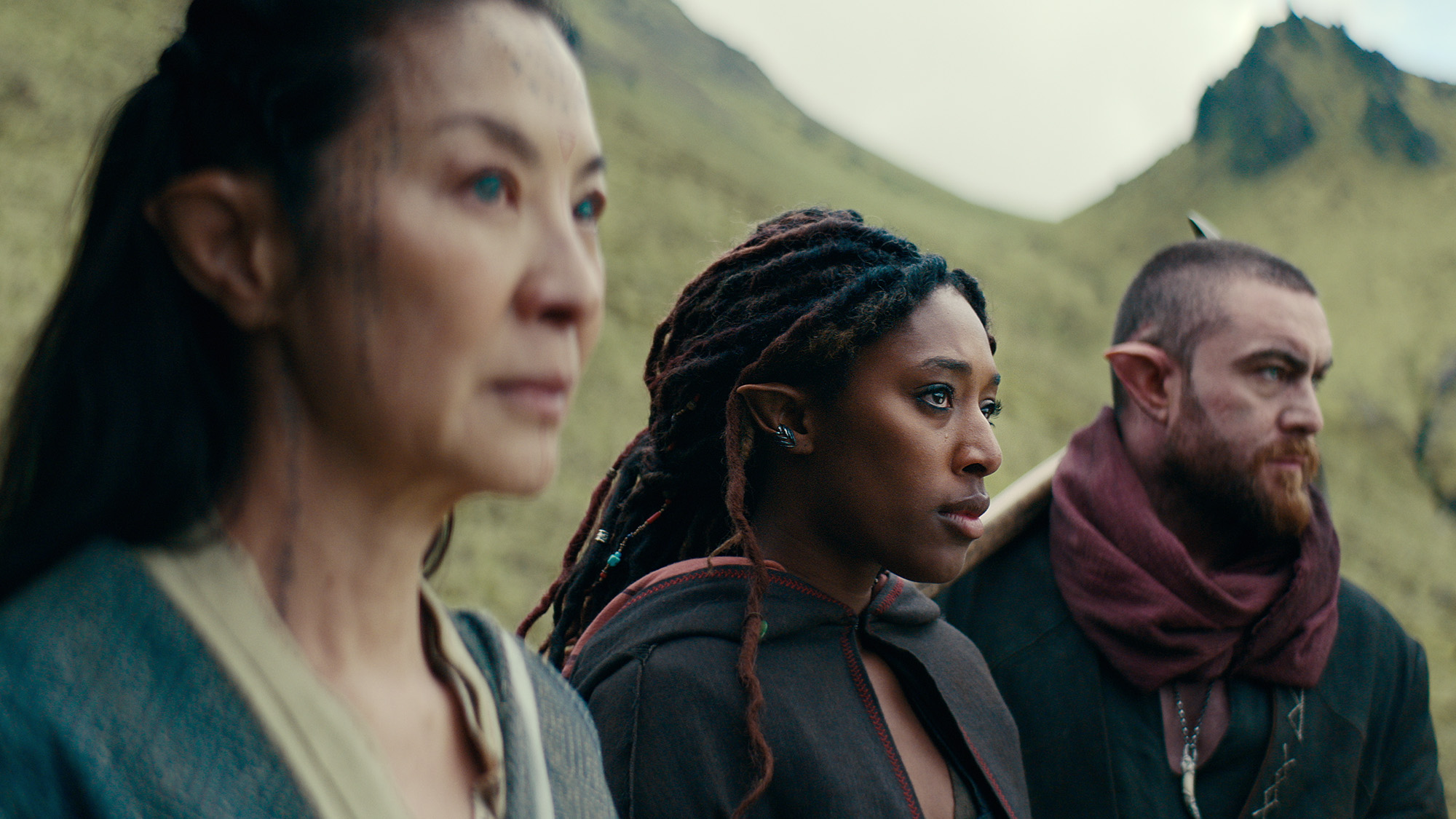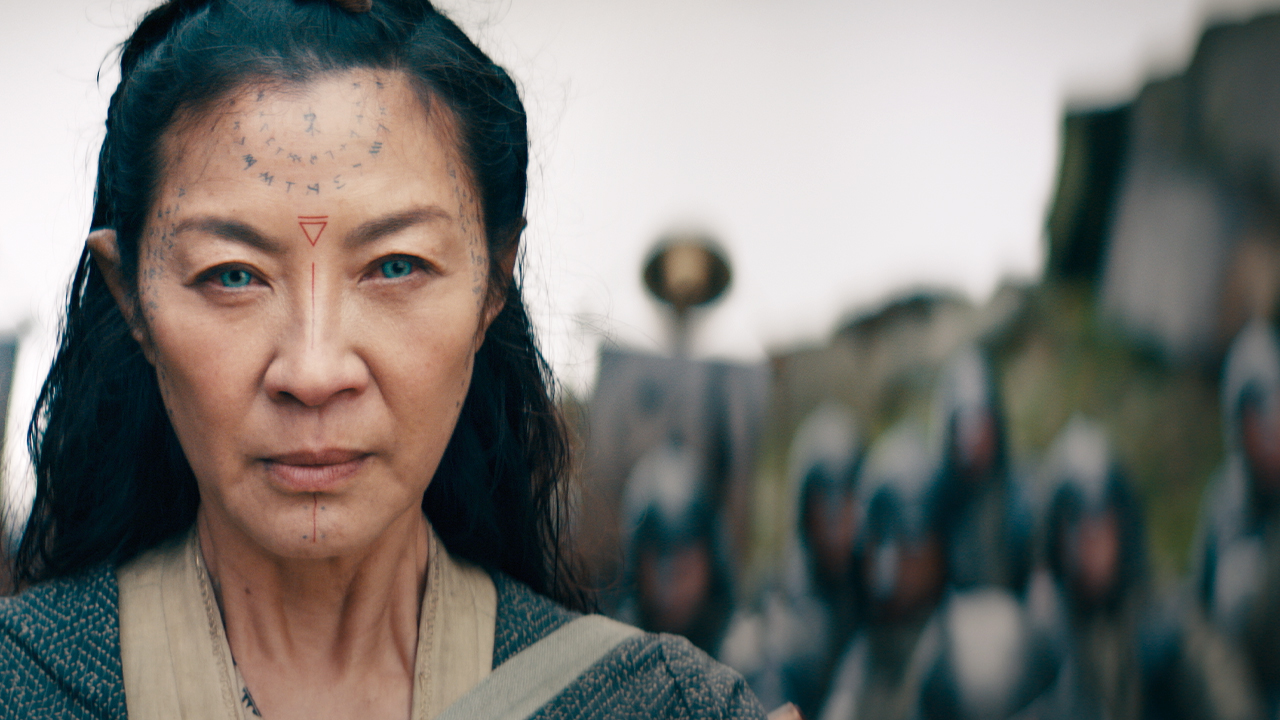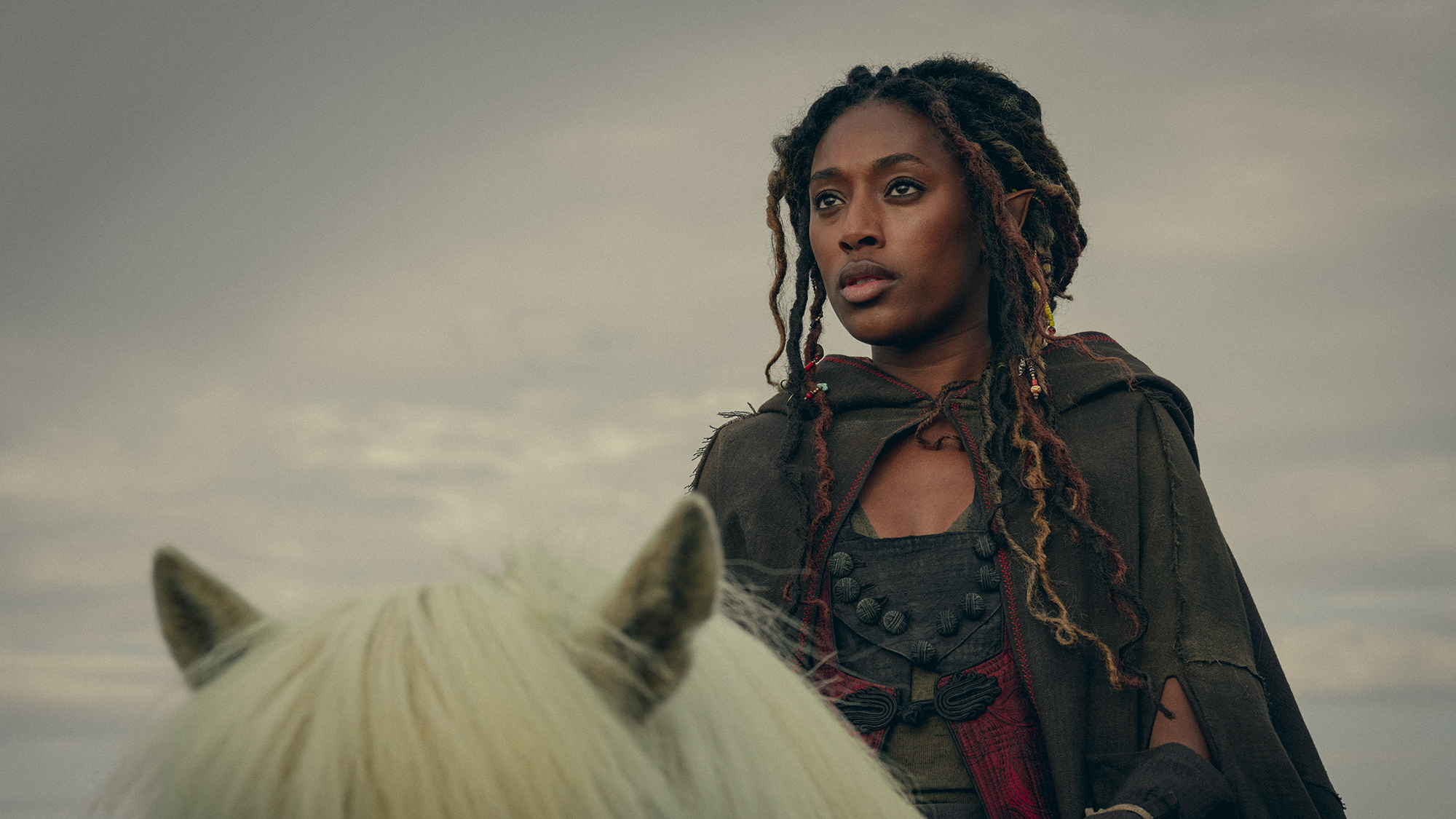The Witcher: Blood Origin reviews are in — and it's 25% on Rotten Tomatoes
Maybe don't toss a coin to this Witcher

The Witcher: Blood Origin's first reviews are here, and we're a bit concerned. This series, a prequel to the Henry Cavill-led The Witcher series (which adapt the titular books, not the popular games), seemed interesting on paper, and we expected it to be strong. It does, of course, have a space in Netflix's grand designs for The Witcher.
But, alas, the first set of reviews (not that many critics have reviewed it yet) is overwhelmingly negative. And this is the latest domino to fall in the wrong direction for the series, as Henry Cavill is leaving after The Witcher season 3. Liam Hemsworth is taking his place in The Witcher season 4.
There's only 8 critic reviews so far, but the Rotten Tomatoes score of 25% for The Witcher: Blood Origin is pretty bad.
The series, which is all about the makings of the first monster hunter to be called a Witcher, takes place 1,200 years before the time we've seen where Geralt (Cavill) is hacking and slashing his way through the Northern Kingdoms. Its three main characters are Éile (Sophia Brown), a former Queen's Guard who became a musician, a blade-specialist named Scían (Michelle Yeoh) and Fjall (Laurence O'Fuarain).
The meta story here is interesting as well. Originally slated for a longer run, The Witcher: Blood Origin (which comes out on Christmas Day, Dec. 25) is only four episodes long, which is the kind of length we only expect from Netflix's true crime content. Yes: Netflix, known for long orders that seem to be too bloated, actually downsized this show. And the results don't seem to be for its benefit.
The Witcher: Blood Origin reviews — what critics dislike
At the time of publication, The Witcher: Blood Origin has a Rotten Tomatoes score of just 25%, and we've pulled some of the top quotes. Unfortunately, most are negative on the series.
Blood Origin is a profoundly messy and unappealing series that casts doubt on the world of The Witcher’s potential in a post-Cavill era.
Zosha Millman, Polygon
Zosha Millman at Polygon wrote the most concerning diagnosis, stating "The Witcher: Blood Origin is ... a profoundly messy and unappealing series that casts doubt on the world of The Witcher’s potential in a post-Cavill era." She elaborates on why it's so bad stating "We don’t know anything about these characters at all, and once backstory gets filled in it feels sloppy and late, so removed from the throughline of their narrative as to reveal how little any of the details actually matter to the show."
Get instant access to breaking news, the hottest reviews, great deals and helpful tips.
And that's the part of The Witcher: Blood Origin's reviews that is reminding me of Black Adam, the last movie I expected to compare to a Witcher plot.

Therese Lacson at Collider subtly notes that Blood Origin is gate-keeping itself, writing "It's hard to imagine anyone watching Blood Origin without already having seen the original series, and making it inaccessible to new viewers limits the show's audience to existing fans."
Her bigger problem is that the magic's gone, as Blood Origin's story, she notes "is full of adventure and questing, but its cast lacks the same type of gruff, winning charm that Cavill brought to Geralt. Though Sophia Brown plays a compelling warrior-turned-bard named Éile (sometimes called the Lark), the dynamic between the characters who are meant to be seen as a group of heroes working together takes far too long to come together and leaves little in terms of emotional heft."
David Opie of DigitalSpy echoes similar complaints that the series is too rushed, writing "That's not to say Sophia Brown isn't up to the task as Éile, or that Michelle Yeoh isn't her typically brilliant self. It's just that most of these characters, and therefore Blood Origin itself, remain frustratingly limited, like rough sketches that haven't quite been fleshed out enough."
The Witcher: Blood Origin reviews — what critics like
Kourtnee Jackson at CNET wrote "On the run, they eventually link up with Michelle Yeoh's Scían, a sword master and the last living member of the Ghost Clan. Though she's not a main hero, Scían will keep you guessing about her true intentions. Yeoh does not disappoint in her performance, whether it's a busy action scene or the calm way she gets her point across. We learn just enough about Scían's people to get a snapshot of her agenda, but it would have been cool to see how her clan figured into the prophecy that drives this whole series."

Jackson also notes that the series is both easy on the eyes and brutal (a combination that was sewn through the first two seasons) writing, "Through a combination of bright and ethereal lighting, the show traverses through the Continent's beautiful mountainscapes and into darker realms where either despair or chaos hovers. Brutal fight scenes command your attention, and deaths are in true Witcher style: graphic."
Unfortunately, she also notes that the series' finale is its best episode, and her headline ('The Witcher' Prequel Series 'Blood Origin' Has One Stellar Episode) suggests those first three episodes are going to be a slog.
The Witcher: Blood Origin outlook

To put it lightly, The Witcher: Blood Origin seems like something you'll only want to watch if you're a Witcher completist or a Michelle Yeoh super-fan. Others, we think, may switch streaming services before they finish the four episode run.
It may bear some importance to the overall chronology of the series, as The Witcher is a series that does like to play with timelines and universes. Thankfully, as noted above, Blood Origin is only four episodes.
Either way, this feels like a bad sign for The Witcher, one of the series that Netflix would love to continue to make sure is a huge hit — and helps them keep their spot as one of the best streaming services. As one reviewer above basically said, it's not a good sign that the first Witcher without Henry Cavill (and it won't be the last) has such troubles.

Henry was a managing editor at Tom’s Guide covering streaming media, laptops and all things Apple, reviewing devices and services for the past seven years. Prior to joining Tom's Guide, he reviewed software and hardware for TechRadar Pro, and interviewed artists for Patek Philippe International Magazine. He's also covered the wild world of professional wrestling for Cageside Seats, interviewing athletes and other industry veterans.
 Club Benefits
Club Benefits






